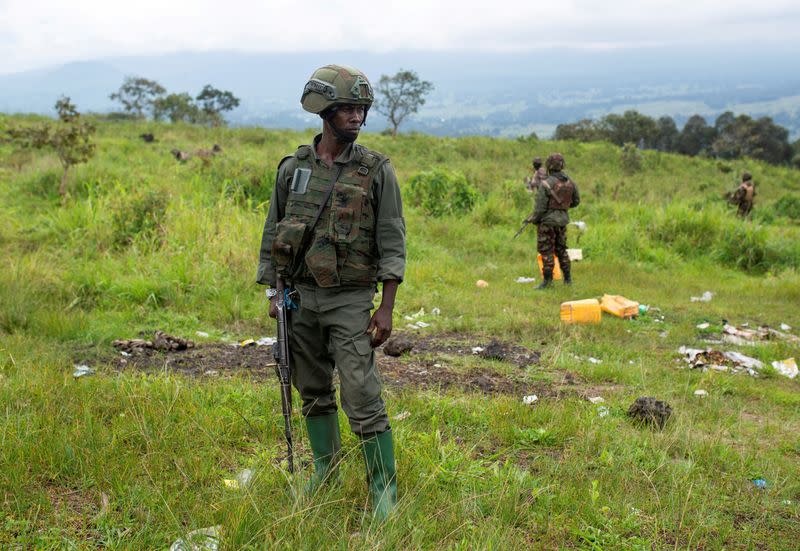DR Congo government says M23 rebels, Rwanda disrupting local air traffic

KINSHASA (Reuters) - Democratic Republic of Congo's government on Monday accused M23 rebels and Rwandan forces backing them of sending false navigation signals to disrupt air traffic over the country's eastern North Kivu province, where Congo's army is locked in fighting with the M23.
The Tutsi-led M23 have been waging a fresh insurgency in the vast central African country's militia-plagued east since 2022. Military efforts to push them back have intensified over the past year with the use of drones and aircraft.
Congo authorities, the United Nations, the United States and other Western governments have accused Rwanda of backing the group. Rwanda vehemently denies the accusations that have heavily soured relations with its neighbour.
In a statement on Monday, the Congolese government said it had investigated the emission of false Global Positioning System (GPS) signals that were disrupting local air traffic.
Investigators traced the spoofing back to the Rwanda Defense Force (RDF) and the M23.
"These acts severely compromise the security of civil air transport," it said, adding that it also undermined humanitarian missions supporting thousands of people displaced by the conflict.
The government did not detail the scale of the impact on air traffic, which includes local passenger, humanitarian, military and U.N. peacekeeping flights over North Kivu.
It said it had reached out to the regional branch of the International Civil Aviation Organization to request appropriate sanctions.
The RDF, the M23 and the U.N. peacekeeping mission in Congo MONUSCO did not immediately respond to requests for comment.
Fighting in North Kivu has driven more than 1.7 million people from their homes, taking the total number of Congolese displaced by multiple conflicts to a record 7.2 million, according to U.N. estimates.
(Reporting by Stanis Bujakera; Additional reporting by Sonia Rolley in Paris; Writing by Sofia Christensen)






